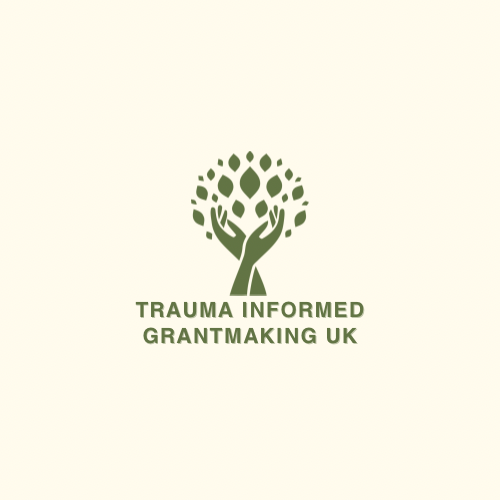On Friday 26th January we convened the first meeting of the Trauma Informed Grantmaking Community of Practice. We had representation from twenty-seven funding bodies, from trusts and foundations to local government and the Mayor’s Office for Policing and Crime. Discussions with funders prior to the community of practice (CoP) highlighted the growing awareness of the prevalence of trauma across society and especially across the people accessing services supported by independent trusts and foundations, commissioned services, and statutory services. In the spirit of becoming more relational funders and shifting power, funders have acknowledged a gap in their knowledge relating to the impact of trauma, what trauma informed practice might look like both within the services they support and within their own organisations. These conversations informed and helped to shape the agenda for the first CoP.
Kate Moralee opened the meeting a co-founder of the community of practice and experienced funder and trauma informed care trainer during her time at Homeless Link. For any space created with the purpose of raising awareness of the impact of trauma and the importance of taking a trauma informed approach, Kate started with a group agreement to create a safe space, respectful of others’ opinions, confidentiality and recognition of potential triggers and the need for self-care.
Experience from homelessness services and a national funder
To set the scene and to really zone in on why being trauma aware and taking a trauma informed approach is so important we heard from two excellent speakers. First up was Jo Prestidge who is Head of National Practice at Homeless Link who spoke about what trauma is, what trauma informed care is and the experience of implementing trauma informed approaches in frontline homelessness services. Second up was Rowan Anderson from Corra Foundation in Scotland who spoke about the context in Scotland having the highest rates of death from drugs and alcohol, the Scottish Government’s implementation of a National Trauma Transformation Programme to create a trauma informed and trauma-responsive workforce and how this has impacted on the work of the Corra Foundation and their own journey to becoming trauma informed grantmakers.
Both Jo and Rowan spoke about becoming trauma informed as a journey and one which takes time and is ongoing. Jo highlighted that even after a decade of implementing this approach in the homelessness sector she is still learning. They also spoke about the vital importance of involving people with lived experience in both service design and decision-making. That this also aligns closely with participatory grantmaking principles, and how we as funders involve people with lived experience of the issues we are trying to have impact on in the design and decision-making of our funding programmes. One of the key components of post-traumatic stress disorder (PTSD) and complex trauma is feeling a lack of control, with things being done to rather than with someone. Working in a participatory way that truly seeks to share power and involves the people we are trying to support through our programmes will ensure those programmes are designed in a way that can truly have positive impact.
Both Jo and Rowan highlighted the key components of a trauma informed approach called the 5 Rs:
- Recognising the different ways that trauma can affect people
- Realising how common the experience of trauma and adversity is
- Responding by taking account of the ways that people can be affected by trauma to support recovery
- Opportunities to Resist re-traumatisation and offer a greater sense of choice and control, empowerment, collaboration, and safety with everyone that you have contact with
- Recognising the central importance of Relationships
Rowan included some learning from Corra’s journey on what becoming Trauma Informed might mean for funders in practice:

Funder breakout session and meeting close
Following both presentations funders went into breakout groups to both meet one another, and to provide some space for sharing where they were at in their journey’s and why they were interested in becoming trauma informed grantmakers. Although time was short there was good discussion in the groups, lots of positivity and excitement at the potential transformational impact becoming trauma informed could have. Feedback from the groups highlighted that funders have varying levels of understanding about how they can become trauma informed grantmakers and are at different places in their journey’s. However common amongst the groups was the shared view of the need for this space for funders, a community of practice where funders can share and seek support at whatever stage they are on their journeys. Attendees also shared their thoughts and ideas through mentimeter, and we will be collating responses to our mentimeter questions later in the month, sharing with all attendees and in a future blog to inform agendas for the community of practice and other potential sessions.
Through convening this space, collaboration, and collective learning we aim to develop the trauma informed approach for the funding community. So, a parting question and food for thought is, do funders need their own trauma transformation programme and could the community of practice be a good place to start that journey?
Thank you to all who attended, we look forward to welcoming you back next time!
Kate, Jo, and Lisa
For more information or to attend the next Community of Practice Meeting please get in touch with us at traumainformedgrantmakinguk@gmail.com


Leave a comment